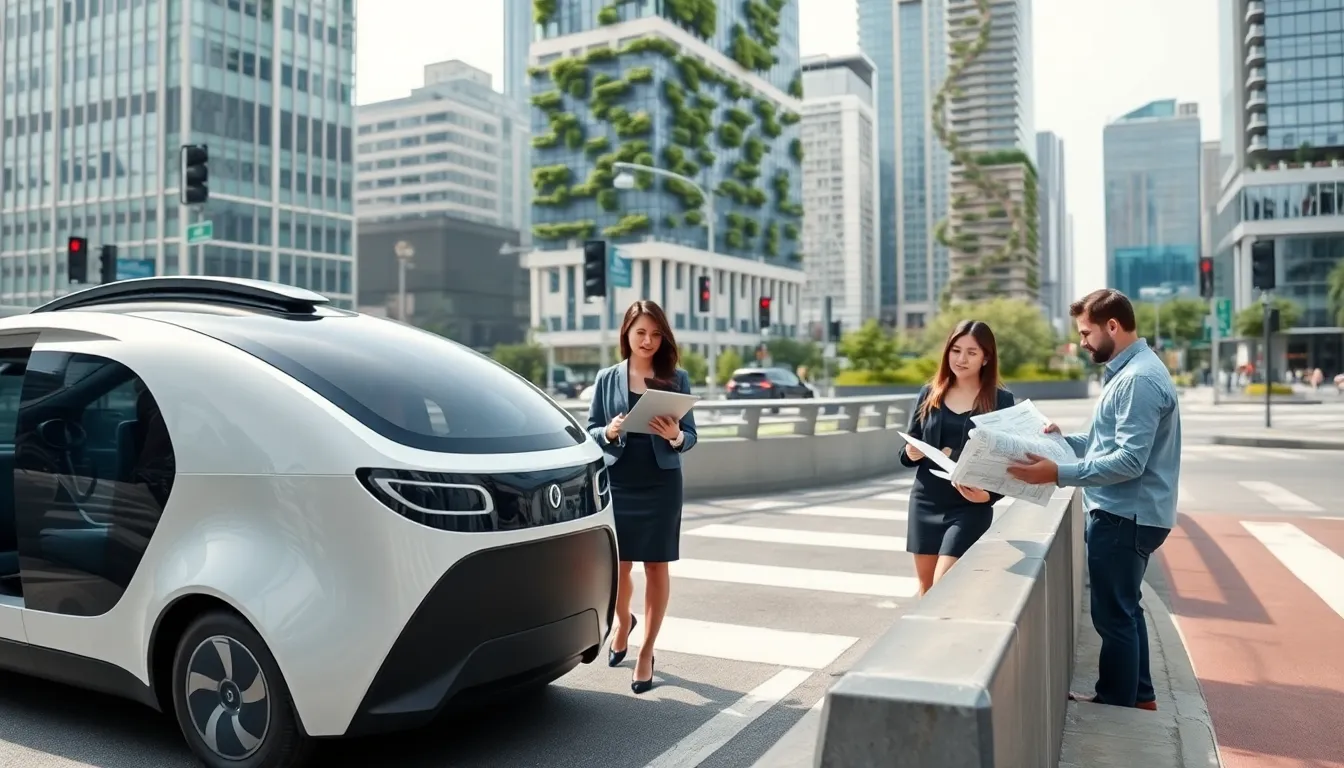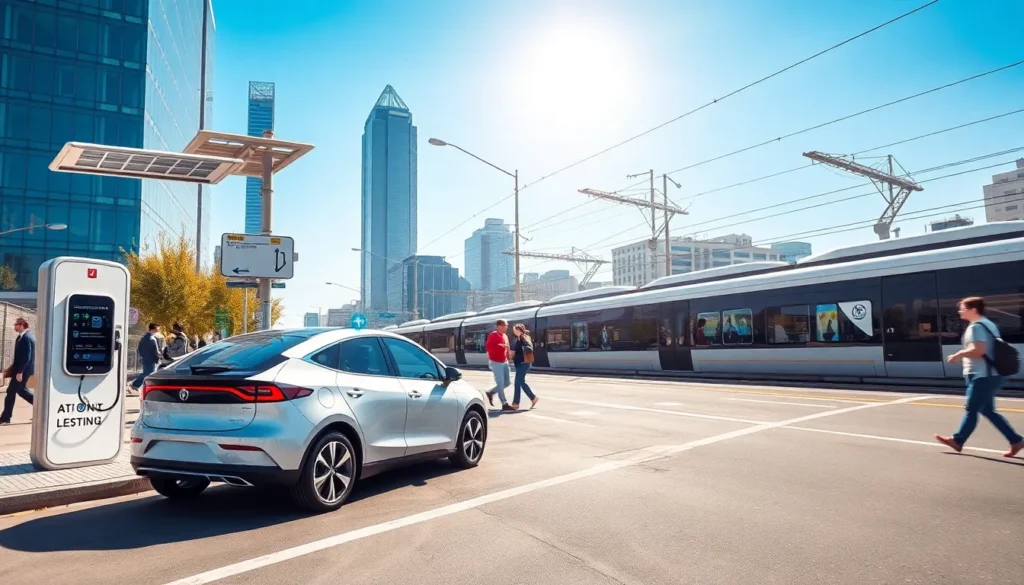Table of Contents
ToggleHave you ever wondered what the future of getting around looks like? Dream of zipping through city streets in a self-driving car or hopping into a hyperloop? With emerging technologies in transportation, those dreams aren’t just fantasies: they’re rapidly becoming reality. Buckle up as we explore how autonomous vehicles, electric cars, smart traffic systems, and futuristic rail innovations promise to revolutionize the way we travel. Spoiler alert: it’s going to be a wild ride.
The Impact Of Autonomous Vehicles

Benefits And Challenges Of Autonomy
Autonomous vehicles (AVs) promised to shake up the transportation landscape in more ways than one. Picture this: no more struggling with parallel parking or worrying about a designated driver after a late-night outing. AVs offer enhanced safety, reduced traffic congestion, and improved accessibility for those who can’t drive. Having the freedom to enjoy the scenery while someone else takes the wheel? Sounds appealing, right?
But, the road to full autonomy isn’t all smooth sailing. The challenges are numerous. Regulatory hurdles, public perception, and safety concerns still loom large. Can society trust machines to make the right decisions in critical moments? There’s also the ethics of programming AVs to make those decisions and the potential job losses in driving professions. It’s a balancing act that requires careful consideration.
Integration With Existing Infrastructure
Let’s not forget about the infrastructure. Integrating AVs into our current transport systems isn’t straightforward. Roadways may need upgrades, traffic signals will require modernization, and cities may need to rethink their layouts. Studies indicate that cities willing to invest in smart infrastructures, like dedicated AV lanes, could see substantial improvements in urban mobility. Still, getting local governments to cooperate on these changes? That’s a whole different story.
Electric Vehicles And Sustainable Transportation
Advancements In Battery Technology
Electric vehicles (EVs) have taken the automotive world by storm, fueled in part by remarkable advancements in battery technology. Imagine cars that charge in minutes instead of hours. New lithium-ion batteries, solid-state options, and fast-charging technologies are coming together to revolutionize the experience of owning an EV.
According to recent studies, battery packs are becoming lighter, more powerful, and cheaper to produce. This means that consumers can enjoy longer ranges without burning a hole in their wallets. As these technologies mature, they’ll pave the way for a more sustainable transportation future that’s friendlier to our planet.
Charging Infrastructure Development
But what good are supercharged cars if the charging stations are as rare as hen’s teeth? The growing interest in EVs necessitates a robust charging infrastructure. Across the U.S., cities and towns are working diligently to roll out charging stations, often partnering with private companies to help development.
From fast chargers at grocery stores to solar-powered charging stations in public parks, innovation in this area is thriving. The more accessible charging options become, the more appealing EVs will be for the average consumer. It’s a win-win for everyone involved.
Smart Traffic Management Systems
Use Of AI And Big Data In Optimization
Smart traffic management systems are set to shake up how we think about roadways. By leveraging artificial intelligence and big data, cities can monitor traffic patterns and optimize signal timings in real-time. Ever waited at a red light while the road was clear?
With smart systems, that could soon be a thing of the past. These technologies analyze data from various sources: traffic cameras, sensors, and even connected vehicles. Imagine a world where traffic flows smoothly, reducing congestion and emissions at the same time.
Real-Time Monitoring And Analytics
But wait, there’s more. Real-time monitoring and analytics provide invaluable insights for transportation planners. By collecting data on commuting habits, cities can identify bottlenecks and areas for improvement. This data can lead to more effective urban designs and sustainable practices going forward, ushering in a new era of intelligent transportation management.
Hyperloop And Next-Generation Rail Systems
Technological Innovations In High-Speed Travel
The hyperloop concept is a thrilling glimpse into the future of travel. Envision pods gliding through low-pressure tubes at speeds that make air travel seem slow. Companies like SpaceX are spearheading prototypes, and countries around the globe are interested in exploring this technology.
Not only is hyperloop potentially faster than conventional trains and planes, but it could also significantly reduce transportation costs. Imagine reducing a multi-hour train journey to a mere minutes. Sounds like science fiction? It’s closer to reality than you think.
Potential Economic Impacts And Feasibility
As for the economics, the hyperloop could be a game-changer. By connecting cities instantly, it can open new economic corridors and stimulate local economies. But, challenges remain: immense costs, land acquisition, and engineering hurdles must be tackled. Before this innovation becomes widespread, feasibility studies will play a crucial role in shaping how this technology might integrate into our lives.




